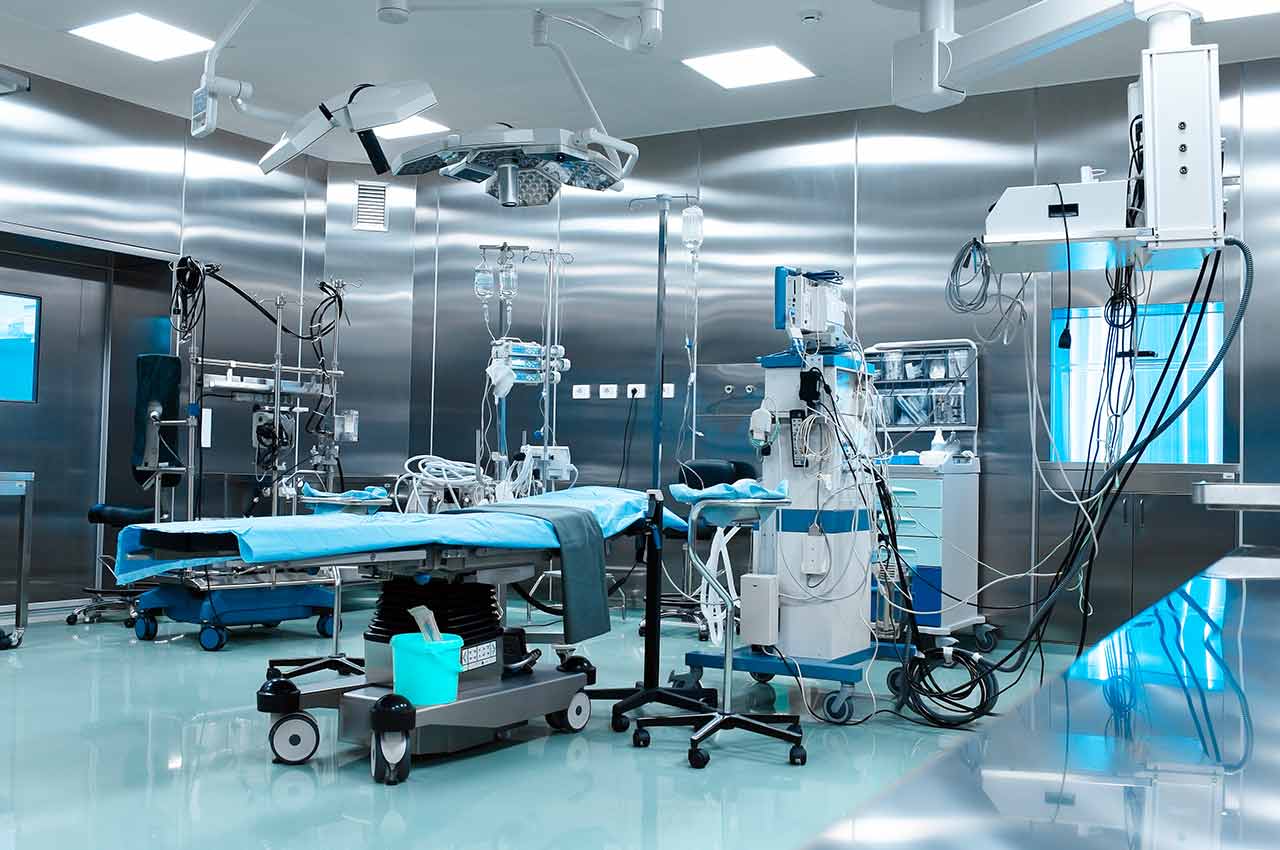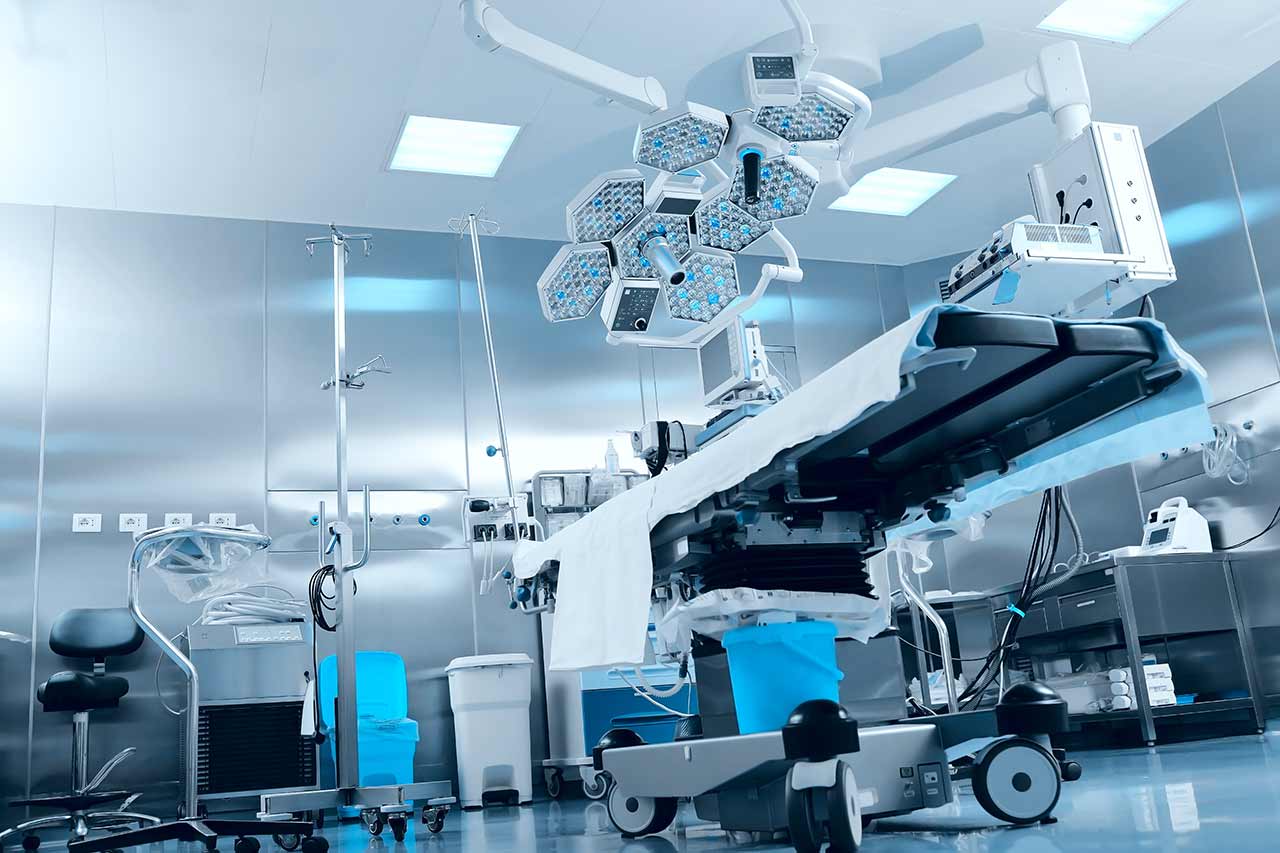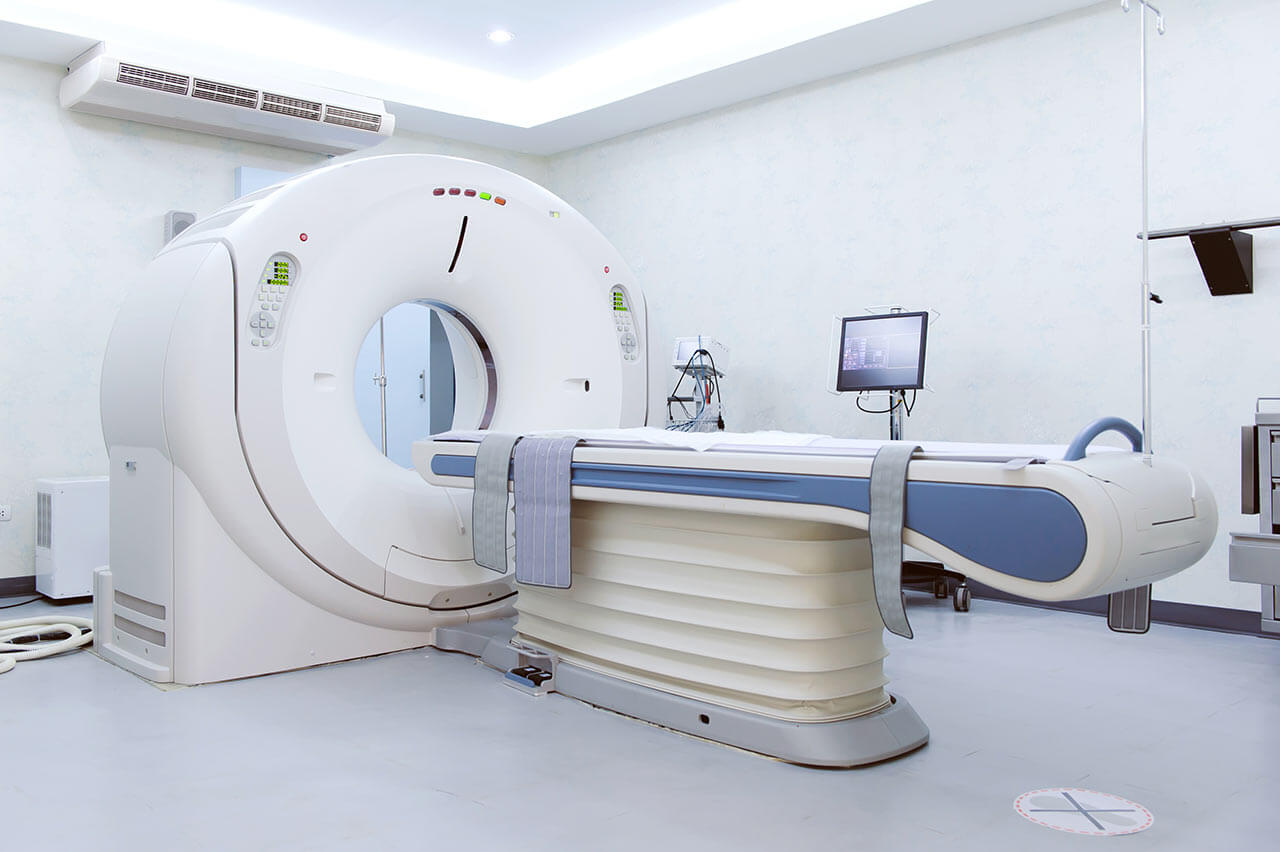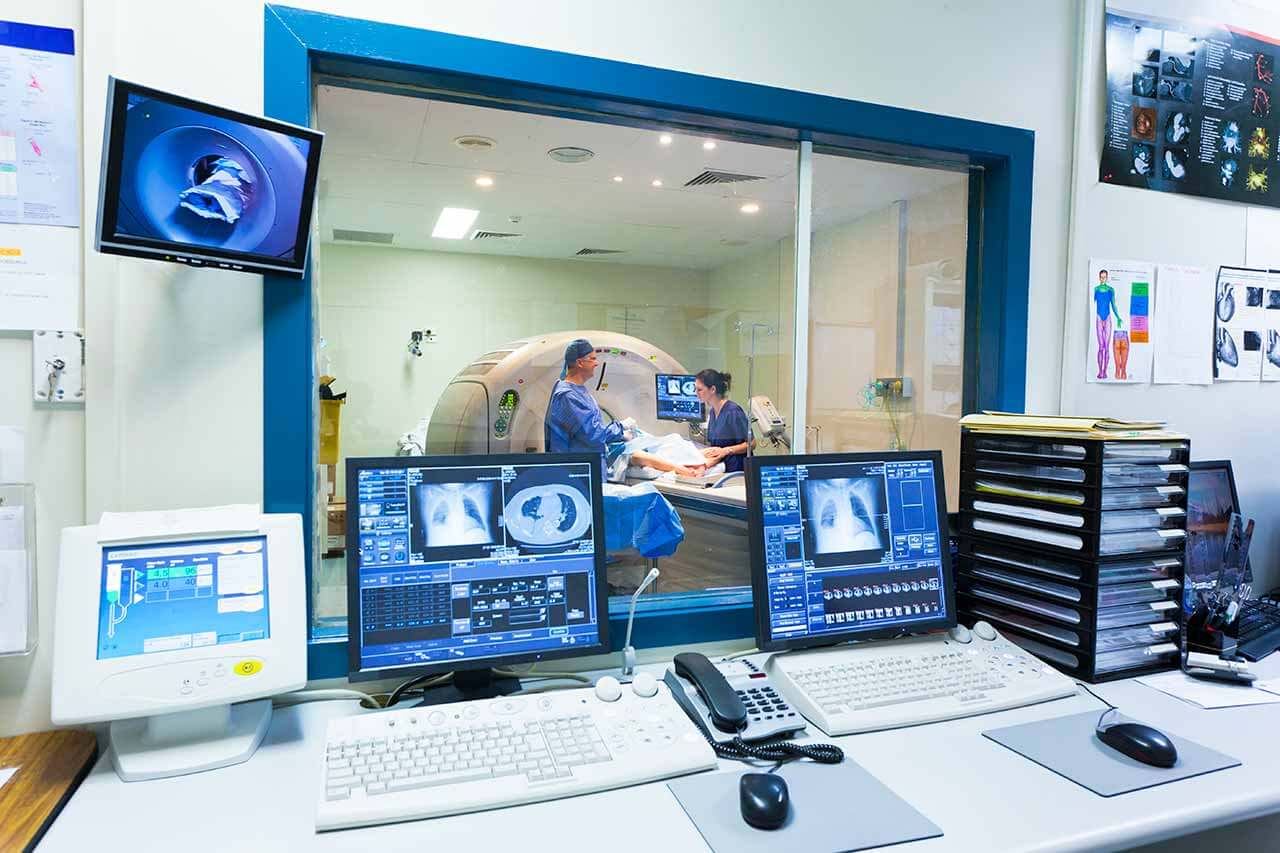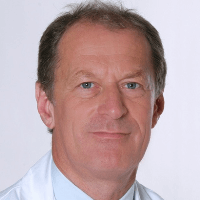
The program includes:
- Initial presentation in the clinic
- history taking
- general clinical examination
- MRI/X-ray of the hand and forearm
- neurological examination
- laboratory tests:
- complete blood count
- biochemical analysis of blood
- inflammation indicators
- TSH-basal, fT3, fT4
- indicators blood coagulation
- electromyogrphy
- electrophysiology
- general blood analysis
- preparation of pre-operational standard
- endiscopic surgery
- symptomatic therapy
- full board clinic stay for up to 4 days
- cost of required medications
- nursing staff services
- elaboration of further recommendations
Required documents
- Medical records
- Electroneuromyography (ENMG) (if available)
Service
You may also book:
 BookingHealth Price from:
BookingHealth Price from:
About the department
The Department of Adult and Pediatric Trauma, Hand and Reconstructive Surgery at the University Hospital Frankfurt am Main offers the full diagnostic and therapeutic service range in the fields of its specialization. In addition to medical care for patients with injuries of varying severity, the department specializes in knee surgery, surgical treatment of the hip joint and pelvis, surgery on the spine, shoulder and elbow joints, foot and ankle joints, sports traumatology, purulent surgery, etc. The department's scope of tasks is complemented by pediatric traumatology, surgical oncology, geriatric traumatology, as well as the treatment of patients with polytrauma. With the use of the very latest methods of osteosynthesis, modern replacement surgical techniques and long experience in proven surgical techniques, the department's specialists ensure optimal treatment results. The Chief Physician of the department is Prof. Dr. med. Ingo Marzi.
The spectrum of knee joint surgery includes wide complex of interventions ranging from sports traumatology to reconstructive interventions in the treatment of the consequences of injuries, as well as fractures in knee joint area. The department also offers the full spectrum of services for the treatment of pelvic and hip injuries, as well as their complications. This includes the individual treatment of combined, life-threatening pelvic fractures in patients with severe injuries, as well as the treatment of fractures caused by degenerative bone changes.
One of the department's key activities is hand surgery. The department covers the full range of conservative treatment and operative hand surgery. It is also a member of the German Society of Hand Surgery and ranks among the top German specialized centers. The department annually performs about 3,000 operations, ranging from minor reconstructive interventions on soft tissues to replantation surgery. In addition, the department offers modern and individual postoperative rehabilitation schemes in order to restore hand function.
Special attention is paid to pediatric traumatology, which includes the treatment of all types of injuries in children and adolescents. These include the treatment of small and extensive wounds, bruises, bone fractures, congenital malformations, as well as muscle and tendon injuries. The treatment involves the use of minimally invasive osteosynthesis techniques, thanks to which the growth of bones is not limited and traumatic soft tissue damage is reduced.
The diagnostic and therapeutic options of the department include:
- Arthroscopic surgeries
- Cancer surgery
- Aesthetic/plastic surgery
- Ligament reconstruction/plastic surgery
- Treatment of bedsores
- Surgical treatment of degenerative and traumatic injuries of the cervical, thoracic and lumbar spine
- Peripheral nerve surgery
- Diagnostics and treatment of arthropathies
- Diagnostics and treatment of osteomyelitis
- Diagnostics and treatment of muscle diseases
- Diagnostics and treatment of diseases of the synovial membrane of the joint and tendons
- Diagnostics and treatment of osteopathies and chondropathies
- Diagnostics and treatment of other diseases of the spine and back
- Diagnostics and treatment of other diseases of the musculoskeletal system and connective tissue
- Diagnostics and treatment of other soft tissue diseases
- Diagnostics and treatment of spondylopathy
- Diagnostics and treatment of systemic connective tissue diseases
- Diagnostics and treatment of musculoskeletal tumors
- Diagnostics and treatment of hip and thigh injuries
- Diagnostics and treatment of ankle and foot injuries
- Diagnostics and treatment of injuries of the lumbosacral spine and pelvis
- Diagnostics and treatment of injuries of the shoulder, elbow and forearm
- Diagnostics and treatment of neck injuries
- Wrist and hand surgery
- Diagnostics and treatment of pathologies of the knee joint and shin
- Diagnostics and treatment of head injuries
- Diagnostics and treatment of thoracic injuries
- Endoprosthetics
- Foot surgery
- Pediatric traumatology
- Removal of foreign bodies
- Operations in thoracic injuries
- Plastic reconstructive interventions
- Multimodal pain therapy
- Purulent bone surgery
- Sports medicine/sports traumatology
- Surgical treatment of burns
- Spinal surgery
- Treatment of chronic wounds
- Diagnostics and treatment of other injuries, diseases and malformations
Curriculum vitae
Education and Professional Experience
- 1977 - 1983 Study of Human Medicine at the Johannes Gutenberg University of Mainz.
- 1984 - 1985 Captain of the Medical Service in Kastellaun.
- 1985 Doctoral thesis defense in Neurology at the Johannes Gutenberg University of Mainz.
- 1985 - 1986 Assistant Physician of the Department of Surgery at the Hospital St. Marienwoerth in Bad Kreuznach.
- 1987 - 1988 Research Fellowship of the German Research Foundation (DFG) at the Department of Pharmacology of the University of North Carolina, USA.
- 1986 - 1996 Assistant Physician and Senior Physician of the Department of Surgery, University Hospital of the Saarland University in Homburg.
- 1993 Habilitation in Surgery at the Medical Faculty of the Saarland University in Homburg.
- 1996 - 1999 Leading Senior Physician of the Department of Trauma, Hand and Reconstructive Surgery at the University Hospital of the Saarland University in Homburg.
- 1998 Visiting Professor at the Faculty of Medicine of the Saarland University in Homburg.
- 1999 - 2001 Acting Head of the Department of Trauma, Hand and Reconstructive Surgery at the University Hospital of the Saarland University in Homburg.
- 2001 University Professor of the Goethe University in Frankfurt am Main.
- Since 2001 Head of the Department of Adult and Pediatric Trauma, Hand and Reconstructive Surgery at the University Hospital Frankfurt am Main.
Qualifications
- 1992 Board certification in Surgery.
- 1992 Additional qualification in Emergency Medical Care.
- 1993 Subspecialization in Traumatology.
- 1996 Additional qualification in Hand Surgery.
- 2000 Additional qualification in Physiotherapy.
- 2005 Board certification in Orthopedics and Traumatology.
- 2010 Additional qualification in Sports Medicine.
Memberships and Awards (selected)
- 2009 - 2014 Head of the Scientific Committee of the German Trauma Society (DGU).
- 2011 President of the Section of Fundamental Research of the German Society of Orthopedics and Traumatology (DGOU).
- 2011 President of the European Society for Trauma & Emergency Surgery (ESTES).
- 2014 Congress President of the World Trauma Congress (WTC).
- Since 2015 Board Member of the German Trauma Society (DGU).
- 2017 President of the German Society of Orthopedics and Traumatology (DGOU).
- 2017 President of the German Trauma Society (DGU).
- German Working Group on Endoprosthetics.
- German Society of Surgery (DGCH).
- German Interdisciplinary Association for Intensive and Emergency Medicine (DIVI).
- Professional Association of German Surgeons (BDC).
- Association of Southern German Orthopedists and Trauma Surgeons (VSOU).
- European Shock Society (ESS).
- European Society for Trauma & Emergency Surgery (ESTES).
- Euroacademia Multidisciplinaria Neurotraumatologica (EMN).
- Association for Orthopedic Research (AFO).
Photo of the doctor: (c) Universitätsklinikum Frankfurt
About hospital
According to the reputable Focus magazine, the University Hospital Frankfurt am Main ranks among the top German medical facilities!
The hospital was founded in 1914 and today is a well-known German medical facility, which combines rich traditions and scientific innovations. A medical team of more than 6,500 employees cares about the health of patients around the clock, ensuring them with the highest standards of medical care and best possible safety.
The hospital has 32 specialized departments and more than 20 research institutes, which have all the necessary resources for the provision of the most effective care for any patient. The hospital has 1,488 beds for inpatient medical care. The medical facility diagnoses and treats more than 51,000 inpatients and about 44,800 outpatients every year. Due to the demonstration of outstanding treatment results, the number of patients seeking medical care here increases significantly annually.
The hospital presents all areas of modern medicine, whereas its special competence lies in neuroscience, oncology, cardiovascular medicine, cardiac surgery and other fields. Many treatment methods available here are unique not only in Europe, but also internationally.
Photo: (c) depositphotos
Accommodation in hospital
Patients rooms
The patients of the University Hospital Frankfurt am Main live in comfortable rooms made in modern design and meeting the highest standards of European medicine. Each room is equipped with an ensuite bathroom with a toilet and a shower. The standard room includes a comfortable, automatically adjustable bed, a bedside table, a wardrobe, a table and chairs for receiving visitors and a TV. If desired, patients can use Wi-Fi. The patients can also stay in the enhanced-comfort rooms.
Meals and Menus
The patient and his accompanying person have a daily choice of three menus. If for any reason you do not eat all the food, you will be offered an individual menu. Please inform the medical staff about your dietary preferences prior to the treatment.
Further details
Standard rooms include:
Religion
Religious services are available upon request.
Accompanying person
During the inpatient program, an accompanying person may stay with you in a patient room or in a hotel of your choice.
Hotel
During the outpatient program, you may stay in a hotel of your choice. Managers will help you choose the most suitable options.
